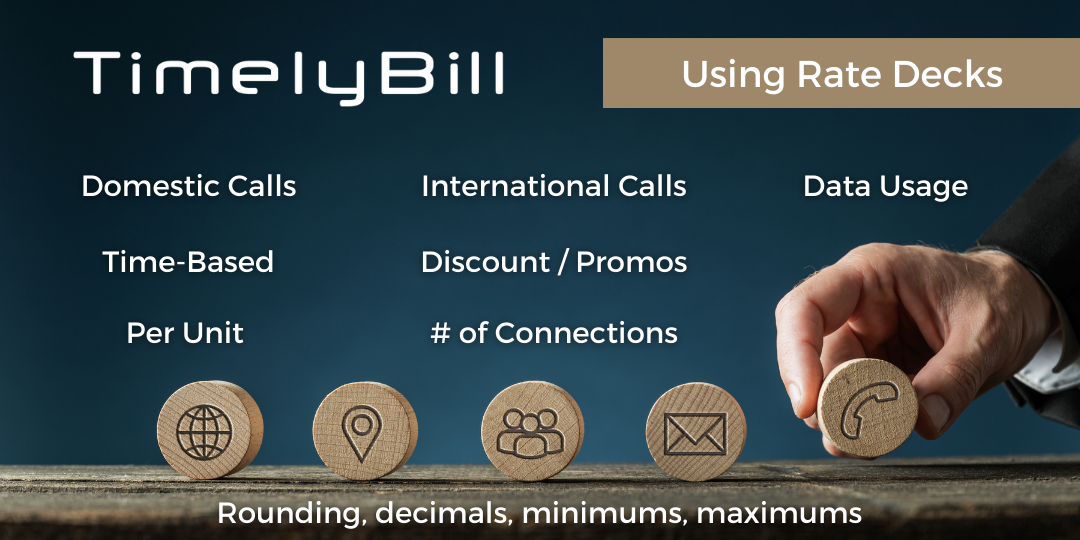
Charge Customers Based on Usage by Configuring Rate Decks in Our Billing System
Building Rate Decks
In TimelyBill, a "rate deck" refers to the various rates, charges, and pricing information a service provider offers. These services include phone calls, text messages, data usage, and users.
A rate deck contains a detailed configuration of charges associated with usage-based services. For example:
- Domestic and International Call Rates: The cost per minute for making calls to various U.S. destinations and other countries.
- Text Message Rates: The cost of sending text messages to different destinations might vary based on whether the message is sent within the provider's network or to other networks.
- Data Usage Rates: Charges for mobile data are often tiered or plan-based, based on data consumption or bandwidth.
- Special Plans: Details about specific packages or plans that offer bundled services at a discounted rate. This could include family plans, data-only plans, unlimited plans, etc.
- Taxes and Surcharges: Any additional charges, taxes, or fees applied to the user's bill that are not directly related to the service usage itself.
- Promotions and Discounts: Free minutes, temporary offers, discounts, or promotions that the telecom provider might be running, along with the terms and conditions associated with them.
TimelyBill rate decks can handle usage from any source, including water, utilities, and IoT devices!
Billing & Rate Flexibility
Rate decks often incorporate specifications for rounding, minimum values, maximum values, and the number of decimals. These parameters determine how charges are calculated and applied within the rating structure.
- Rounding: Rate decks may specify whether charges should round up, round down, or be rounded to the nearest specified increment, and the number of decimals to which the charge should be rounded. For example, call charges could round to the nearest minute with 2 decimal places; data usage might round to the closest kilobyte or megabyte with 3 decimal places.
- Minimum Values: Rate decks can set minimum charges. For example, the system charges a minimum fee even if a specific call is short.
- Maximum Values: Maximum values set an upper limit on charges. This preventive measure prevents unexpectedly high charges for excessive usage.
For providers, rate decks ensure billing remains consistent and accurate. They also help CSPs establish competitive pricing strategies and analyze revenue streams generated by various services. On the customer side, rate decks clarify expenses linked to their usage, enabling them to choose the most suitable plans or services that align with their requirements and budget constraints.
Learn more on our website: Rate Decks and Usage Plans.↗️